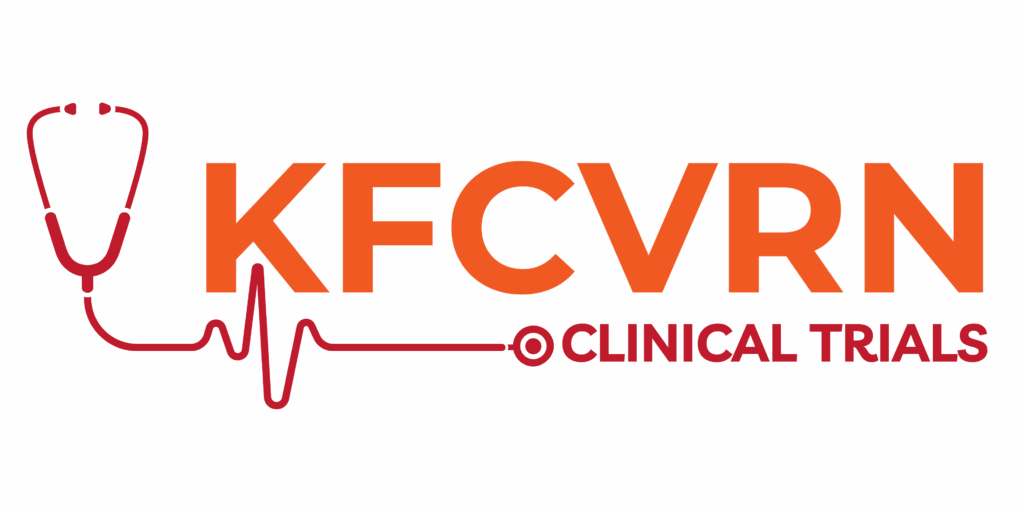Every major medical breakthrough begins with one essential ingredient — people willing to participate. Behind every new treatment, vaccine, or life-saving therapy are countless individuals who chose to be part of something bigger than themselves. At KFCVRN, we believe that clinical trial volunteers are the true driving force of medical progress. Their courage, commitment, and trust make it possible to bring innovative treatments from the lab to the lives of those who need them most.
Understanding the Role of Clinical Trial Volunteers
Clinical trials are the foundation of modern medicine. They test the safety, effectiveness, and potential benefits of new drugs, medical devices, and therapies. But while research teams and scientists design these studies, it’s the volunteers who make discovery possible.
When you participate in a clinical trial at KFCVRN, you’re not just signing up for a study — you’re joining a mission to improve lives. Every piece of data collected, every observation made, and every experience shared contributes to the collective understanding of how to prevent, treat, and cure diseases.
Volunteers are at the heart of the scientific process. Without them, research would stall, innovation would slow, and the treatments we rely on today might never have existed.
Why People Choose to Participate
People volunteer for clinical trials for many different reasons. Some join because they or a loved one are living with a condition that has limited treatment options. Others participate to help advance science and improve healthcare for future generations.
At KFCVRN, we often hear participants express a deep sense of purpose and pride in being part of something meaningful. Knowing that their involvement could help develop a therapy that saves lives gives them a strong sense of contribution and hope.
There are also practical benefits. Many studies provide participants with access to new or experimental treatments not yet available to the public. Participants often receive close medical monitoring from expert professionals, ensuring that their health is carefully observed throughout the process.
How Clinical Trial Participation Drives Medical Innovation
Each clinical trial represents a critical step toward developing safer, more effective treatments. But progress doesn’t happen overnight — it happens one participant at a time.
Volunteers help researchers answer essential questions:
- Does a new medication work as expected?
- What side effects might occur?
- How does this treatment compare to current standards of care?
Every answer helps refine medical knowledge and guides doctors in making better treatment decisions. Through participation, volunteers help bridge the gap between discovery and delivery — transforming scientific ideas into real-world healthcare solutions.
For example, breakthroughs in cancer therapies, vaccines, and chronic disease management were all made possible through clinical research. Without participants, none of these medical advancements could have reached patients safely or effectively.
The Safety and Ethics Behind Every Study
At KFCVRN, participant safety is always the top priority. Every clinical trial we conduct follows strict ethical standards and is carefully reviewed by regulatory and medical authorities.
Before any study begins, it undergoes a thorough approval process by an Institutional Review Board (IRB) to ensure that it is ethical, transparent, and scientifically sound. Participants are fully informed about the study’s purpose, procedures, risks, and benefits before they decide to join.
We encourage open communication at every step. Our team is always available to answer questions, explain details, and provide support. No participant is ever pressured to continue a study; volunteers have the right to withdraw at any time.
This level of care and oversight helps ensure that research is conducted responsibly, respectfully, and with the well-being of participants at its core.
How Volunteers Impact Future Generations
The impact of clinical trial participation extends far beyond the individuals who take part. Each study builds on the knowledge gained from those before it, creating a ripple effect that benefits patients for years — even decades — to come.
Thanks to past volunteers, treatments for cancer, diabetes, heart disease, and countless other conditions are now safer and more effective. New vaccines have been developed, surgical procedures have improved, and diagnostic tools have become more precise.
By choosing to participate, today’s volunteers are helping write the next chapter of medical history. Their contribution lays the groundwork for future generations to live healthier, longer lives.
At KFCVRN, we often remind our participants that their involvement is more than just data — it’s legacy. Every test, every visit, and every milestone brings medicine one step closer to breakthroughs that will change lives across the world.
What Participants Can Expect at KFCVRN
Joining a clinical trial can feel like a big step, but KFCVRN makes the process clear, supportive, and personalized from start to finish.
Here’s what participants can expect:
- Initial Consultation – Our team begins by understanding your medical background and determining which trials best fit your health profile and goals.
- Detailed Study Information – You’ll receive clear explanations about the study, including procedures, timelines, and potential benefits or risks.
- Informed Consent – Before joining, we ensure you fully understand the trial details so you can make an informed decision.
- Regular Monitoring – During the trial, our medical professionals provide consistent care, monitor your progress, and keep you informed at every step.
- Ongoing Communication – You’re never alone in your journey. Our team is always available to answer questions and provide assistance.
We believe that transparency builds trust. By guiding participants with compassion and professionalism, we ensure every volunteer has a positive and meaningful experience.
Breaking Myths About Clinical Trials
There are many misconceptions about clinical research that can discourage people from participating. At KFCVRN, we work hard to educate communities and debunk these myths.
Myth 1: Clinical trials are unsafe.
→ Fact: Every study is carefully reviewed and monitored by ethical committees and medical experts to ensure participant safety.
Myth 2: Participants are treated like test subjects.
→ Fact: Volunteers are treated as valued partners in research, with respect, care, and full transparency.
Myth 3: Trials are only for people who are sick.
→ Fact: Many trials involve healthy volunteers to study prevention, wellness, and early intervention.
By breaking down these misconceptions, more people can feel confident about participating and contributing to medical progress.
Be Part of the Change
Every breakthrough in medicine — from life-saving vaccines to advanced cancer treatments — exists because people chose to take part in research. By joining a clinical trial, you’re not just helping yourself; you’re helping millions of others who could benefit from new discoveries.
At KFCVRN, we honor every volunteer’s contribution. Your participation fuels hope, inspires innovation, and paves the way for a healthier world.
If you’ve ever wondered how you can make a real impact in medicine, the answer might be simpler than you think — it starts with participation.
Join KFCVRN today and be part of groundbreaking research that’s shaping the future of healthcare.

